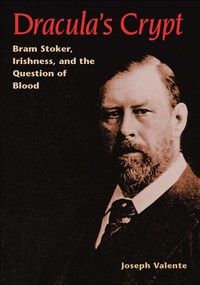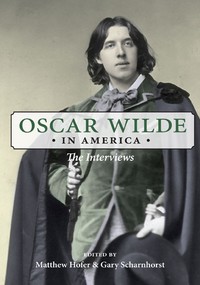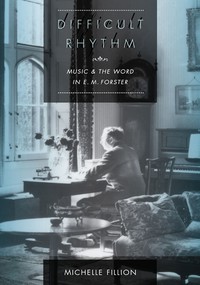
The Myth of Manliness in Irish National Culture, 1880-1922
About the Book
This study aims to supply the first contextually precise account of the male gender anxieties and ambivalences haunting the culture of Irish nationalism in the period between the Act of Union and the founding of the Irish Free State. To this end, Joseph Valente focuses upon the Victorian ethos of manliness or manhood, the specific moral and political logic of which proved crucial to both the translation of British rule into British hegemony and the expression of Irish rebellion as Irish psychomachia. The influential operation of this ideological construct is traced through a wide variety of contexts, including the career of Ireland's dominant Parliamentary leader, Charles Stewart Parnell; the institutions of Irish Revivalism--cultural, educational, journalistic, and literary; the writings of both canonical authors (Yeats, Synge, Gregory, and Joyce) and subcanonical authors (James Stephens, Patrick Pearse, Lennox Robinson); and major political movements of the time, including suffragism, Sinn Fein, Na Fianna Éireann, and the Volunteers.The construct of manliness remains very much alive today, underpinning the neo-imperialist marriage of ruthless aggression and the sanctities of duty, honor, and sacrifice. Mapping its earlier colonial and postcolonial formations can help us to understand its continuing geopolitical appeal and danger.
Reviews
"Gender identity and its formation have . . . become dominant critical and theoretical problems in Irish Studies. Joseph Valente's new book, The Myth of Manliness, explores the vital importance of masculinity for our understanding of these problems, especially in a nationalist framework."--Irish Literary Supplement"The book convincingly demonstrates how gendered norms shaped British imperialism and Irish political resistance."--Nineteenth-Century Gender Studies
"Sheds interesting light on Irish nationalism and its complex appropriation of Victorian gendered norms."--Études irlandaises
"[The Myth of Manliness] successfully links socio-political dimensions to gender performance."--Victoriographies
"This book's strengths are undoubted, and are mainly in the perspicacious double-bind of manliness that is in evidence in spheres political, cultural and literary; its power is thus immeasurable."--Irish Studies Review
"A growing number of publications [address] Irish masculinities. Joe Valente’s recent The Myth of Manliness in Irish National Culture (2011) has set the bar in this area, and it will take some time before it is surpassed."--Beckett Circle Book Reviews
"In a work of soaring ambition and equivalent achievement, Joseph Valente's study of the Victorian trope of manliness in Irish national culture has the potential not only to influence postcolonial studies beyond its subfield—Irish studies—but also to bring the subfield itself into broader geopolitical circuits of scholarly exchange." -- Interventions
"A significant contribution to the field of Irish literary and gender studies. . . . A new map for reading some of the foundational texts of twentieth-century Irish literature."--Modern Fiction Studies
"The Myth of Manliness is a work of exemplary scholarship and astute analysis. Fluently written and beautifully presented, it marks an original and very significant contribution to the study of Irish culture in this remarkably formative period."--Modernism/Modernity
"Required reading for all interested in gender studies in both Irish and postcolonial contexts, and a landmark in the field of masculinity studies, Valente's book is a major, and lasting intervention."--Irish University Review
"Rewarding and challenging."--James Joyce Quarterly
"One of the most important contributions to Irish Victorian studies in recent years. . . . This is a major study from one of our preeminent critics. It challenges and extends received wisdom on every page. It rewards careful reading and deserves a wide audience."--Victorian Studies
"There is not only a powerful analysis of Victorian manliness to be found in this book, but also invaluable pockets of surprising information and new readings for historians, feminist and queer critics, scholars of the Renaissance and modernism, and those interested in Irish literature, theater, and culture."--College Literature
Blurbs
"This is undoubtedly a pioneering study. It discusses constructions of Irish manhood in one of the most decisive periods of Irish nationalist mobilization with a degree of ingenuity, authority, and commitment that is simply unmatched in the field."--Joe Cleary, author of Outrageous Fortune: Capital and Culture in Modern Ireland
"Valente proceeds to significantly reshape our sense of what the major ideological structures of Irish nationalist culture were during this period. He demonstrates so convincingly that his conception of manliness was absolutely crucial to a wide range of cultural discourses that, by the time I finished I was wondering why no one had seen all this before. But no one had."--Marjorie Howes, author of Colonial Crossings: Figures in Irish Literary History
"Joseph Valente's book on manliness and Irish nationalism is one of the most startlingly illuminating books I have ever read on Irish literature, and I have read many; it is not only historically informed, like much of the finest critical work of the last fifteen years, it has also uncovered new historical material and intertwined those discoveries with a sophisticated and original theoretical model about how the ideal of manliness operated in both Victorian England and pre-treaty Ireland."--Vicki Mahaffey, author of Reauthorizing Joyce





